The free cloud invoice management service "Misoca" financed and learned

ByThinkpanama
IMisocaI'm a representative of a startup that runs a free cloud invoice management service. This service is easy to make invoices and send them by e-mail or automatic mailing, which is popular, users now exceed 10,000 businesses, mainly freelancers, etc. In order to make the business bigger, 2013 In September we raised funds of 30 million yen from venture capital (VC).
Financing (equity finance) is strange and it is not a big deal once it is done, but before I actually do it, I think there is a place where I do not understand the whole thing at all. That was the case for me at least an engineer.
This is what it says like "I do not know how to make her" in a story saying "I am acquainted with a girl → I do something → I am going with something" What is it? I did not understand "what to do" of "to make a company → do something → procure". Especially I got a very helpful reference to me at such a time was information on financing on the net which was a little.
I read that sort of things and thought of various things, I also thought that I would write for the next people as I procured funds, so I would like to leave things remembered six months ago.
Table of contents
· Why did you want to raise funds?
· Books I read for studying
· Financing step
· Step 1: Meet Venture Capital
· Step 2: Make a business plan
· Step 3: Pitch · Interview
· Step 4: Conditional negotiation · Contract
· Consulting expert
· What happened after financing?
· Regarding starting up in rural area
·Finally
◆ Why did you decide to raise funds?

ByEmily Mills
There were three major reasons why I raised funds.
The first is that we originally developed contracts and wanted to stop the contract development. Originally it was difficult for both of us to do both compromise between contract development and our own service development. However, even though I think that "I will stop commissioning someday" and "Let's make this consignment last", I can not stop worrying that cash will disappear. Also, as continuing and additional projects will come even if you do not actively open up, I felt it was impossible to quit with the power of will.
The second is a simple longing feeling that "I want to raise funds from VC once" and "I want to be like other venture with momentum". In theory, this is a big mistake. But it is an honest point that I felt that way.
These were the first motives. However, as I actually learned about fund procurement, I learned that equity finance (fund procurement involving issuing new shares) is not the best, there is a demerit from the aspect of capital cost, and we also considered debt financing (debt finance). Debt finance may not require personal guarantee. But on that basis, we chose equity finance this time.
The primary reason for financing the third reason is the speed of service development. I think that there is also a service management style of gradually increasing the number of users and adding additional functions, but "If the competition gets fund procurement" "If you think you can be imitated by the major" There was a feeling that I wanted to beat.
◆ Books I have read for studying
Although I can not be said that there is still confidence in knowledge, my knowledge at the time was really equal to none so I studied somewhat. For example, I think that you read the following books.
The most important thing for a start-up finance venture
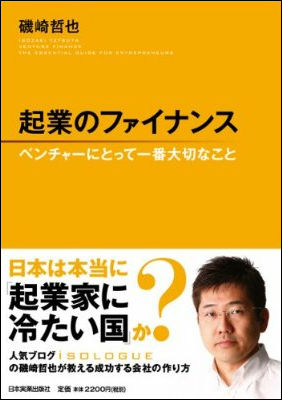
Introductory venture finance - Practical knowledge of company establishment, disclosure and sale

Introduction to Corporate Finance

You should definitely read "finance of entrepreneurship". After that, I was good to read about corporate finance etc as I did not know it at all. I learned that it was a big mistake if I thought that raising funds was "money you can get free and not return good money". I think that there are various kinds of books from then at the bookstore.
◆ Steps of financing
The steps can be divided into the following four.
· Become acquainted with venture capital
· Make a business plan
· Pitching
· Conditional negotiation · Contract
◆ Step 1: Meet Venture Capital

ByKevin Krejci
First of all, we have to talk about venture capital (venture capitalist, hereafter VC) if we do not meet each other. This is commonplace, but I had no idea that I was living in Nagoya and not having a VC nearby, or having worked as a VC encounter. I think that I will go to consult with VC before business idea emerges at the head and drops to business plan right now.
In fact there are the following methods.
· Have an introduction
· Contact directly
· Meet in the event
The best thing will be introduced. You should ask the president of your acquaintance or the startup.
There was also contact from release released by press release distribution service. Press release distribution services are intense in price difference, but it seems that there are also many people who are picked up and read by various media from the past.
In the case of Misoca, since there was no idea to get acquainted with VC in the first place, it began from meeting where we got acquainted with participating business cards for startup events.Samurai Venture SummitYaB DASH CAMP,TechCrunch TokyoI met people who introduce many VCs and VCs while exchanging business cards at events such as.
If you do not know, for exampleVenture capital · PE fund listTo find the official website using such as, direct contact. However, I do not know how much probability you can meet.
◆ Step 2: Make a business plan

ByKamilla Oliveira
When it comes to VC and "Let's meet once," we will make a business plan and take it.
Making a business plan might imagine something of tens of pages, but what I was using was as simple as 10 pages or less. Even if you make amazing things from the beginning, you will be correcting anything, so you should start with only the main frame.
· Cover
· Company profile · Member summary (Officer's brief history · Advisor introduction)
· Service outline
· Balance plan for 3 years (only 4 users, sales, cost and profit)
· Market size · Competition
·currentKPI
I was not sure until I met various VCs that the importance of the business plan was important, but I gradually understood while I was explaining the business many times. The reason why I did not understand was that I did not understand the following.
· Others do not know the current state of their business at all
· Others are surrounding situation surrounding current business · I do not know the trend at all
· Others do not know at all about dreams of their own business and plans for the future
For example, in the case of Misoca, I said "Freelance is very troubled with bills (current state), cloud services are spreading and free lances are also increasing (trends) I thought that it would lead to a business offering greater value such as electronic settlement and electronic contract later (plan for the future) ".
But this is a story in the boiling brain of entrepreneurs. A normal person says, "Eee? S individual business owner's invoice? It will be over in about 10 minutes and you really are in trouble? And if you only make PDF, you can do it with Excel, There is not it "I will show you the reaction ... ....
To persuade people like this to understand the background of the project and uncertain things such as future sales and so on to convince the possibility that it is a plan after a certain degree of state is properly examined . In other words, I think now that business planning document is manualized so that anyone can infect and propagate the boiling brain of entrepreneurs.
Reference material is
·(PDF file: about 3 MB)MIC Project Plan Preparation and Venture Business Guide
·How to make a business plan understanding from zero with CD-ROM
is.
◆ Step 3: Pitch · Interview
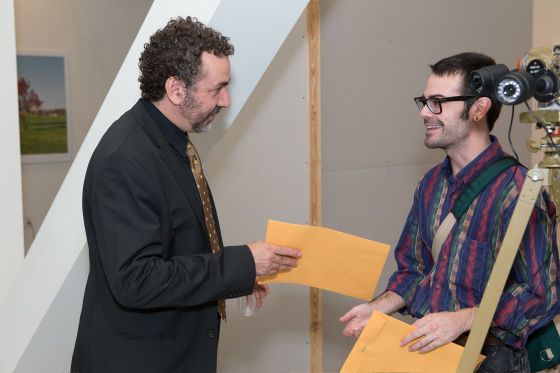
ByBurnAway
Once you have material to take to VC, next time you have an interview.
I was first told "I will talk face-to-face", but I did not know exactly what to do. "It was probably a one-shot game like a job interview ... ...", I was very nervous, but it is not so. If you meet VC, you may think that "go to a presentation" some people may think, but first hear opinions of your own ideas, think about thinking about discussing and consulting is okay. First of all, I will see a flow like seeing and making relationships while exchanging information several times.
Ultimately I met with about 20 VCs, but since most VCs are in Tokyo, that area was a difficult spot for transportation and temporal as a regional startup. There was also an interview with Skype inside, but as compatibility as human beings with each other is also very important as I will explain later, I think that it is better to meet them again and again.
·Point to choose VC
I discovered about 20 VCs, that VC also has many different personality. For example, whether the investment field is limited due to the circumstances of the parent company, whether growth is aimed at short-term or medium-to-long term, what fields are good at the person in charge, when is the deadline of the fund, and so on.
Also, what is surprisingly important is whether you are going to get along with the person in charge of VC. I thought especially after the procurement, but it is necessary to honestly do everything when it is good or bad with the person in charge of VC. It is hard to do even if it is a little. If you think that the sensitivity to business is different, ignore that feeling.
I also met with more than 20 VCs, and everyone is a very good person and it is amazing, but it was about 3 or 4 people who thought that they were similar in feeling to me and it seemed like they could be long with this person .
·Benefits of meeting VC early
Meeting a lot with VC has many benefits. For example, they are investment professionals, they actually look at their business in terms of whether to invest or not.
In other words, though it thinks with the feelings of management, thinking in that way, there is not quite a person who does not hesitate to say opinions.
Every time I meet VC, Misoca has been brushed up the business plan and investigated new indicators and it got better and more sophisticated.
Also, myself was also really cautious as I was hurt only in the early days, but gradually I gained the trick to tell the opponent how to explain in what order and how easy to understand, the explanation of the project will be fine I think that I knew well the core of the project even oneself.
◆ Step 4: Conditional negotiation · Contract
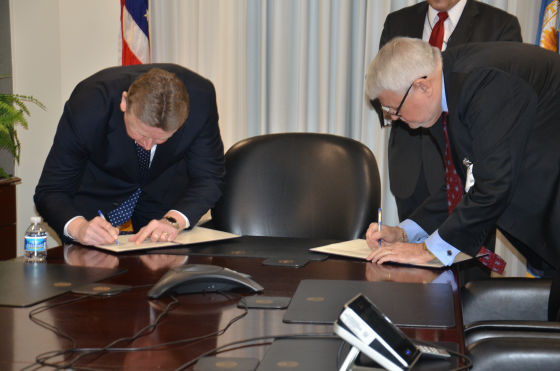
ByAFGE
After a few interviews and you think that it is good for each other, we go into condition negotiations. It will talk about how much valuation (corporate value) is, but in the case of startup it will not be realistic to give accurate valuations.
How much do you need to do business in the future? How much do you usually decide from other places like examples of other companies?
It is difficult that valuation is not good as long as it is high. While thinking about capital policy in the future, if it is not possible to obtain good conditions, we need to consider changing to other VCs.
In the case of Misoca I was an amateur so I studied myself while talking to a special accountant to the venture, the other CEO / CFO of the startup with experience of procurement, the president of the listed company etc. In the case of debt finance it is over if you repay the money but in the case of the equity you can not usually backtrack so you should consult experts, trusted people, experienced people.
·Contract / transfer
I will sign a contract if I can agree to the terms. Let's have a review by a lawyer familiar with fund procurement.
Even here I can understand the meaning, but when I do not know how it actually affects in the future I consulted with other experienced people.
The contract was nervous of the transfer. For me it was the maximum amount we treat at once, and if there is a mistake we can not turn back. When I was actually transferred and confirmed the balance, I was happy to be honest, and after purchasing it was in a situation where sales were not enough because I made adjustments not to undertake contract development, so I was really relieved as a manager.
◆ Consulting expert
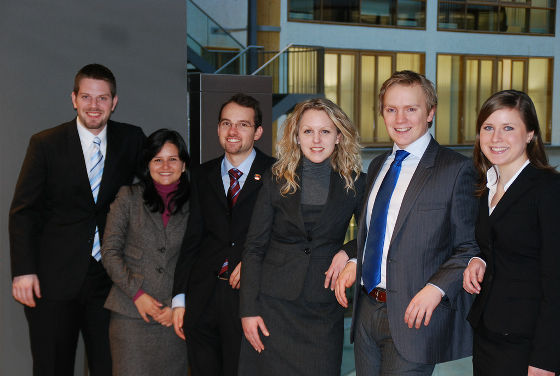
ByAiesecgermany
Until funds procurement was completed, I spoke to various people.
· Accountants specialized in start-ups and ventures
· Number of advisors with knowledge of listed companies, listed companies, financing
· CFO of other startups
The most indebted thing is the advisor, but the accountant remains in the impression.
Although I went to consult about finance accountant, I was conscientiously insulted person who says things honestly "I never give out money like this", "You should stop quietly" "Boring" "Understand the meaning There was nothing from the business model in the first place, such as "There is nothing."
Although I was seriously doing it, there were times when my tears seemed to be about to come out a little more, but even after talking about the business plan to a good friend in the end I ended up being able to say "OK" Such people are truly precious. After financing, I took an advisory contract with him in lieu of a tax accountant in Nagoya.
◆ What happened after financing?
After financing, I was wondering if I could relieve you of worrying about money somehow but there was not such a thing at all. Up to now all work that "I can not do it because there is no money" has become "possible" and the work has increased by the mountain. Since responsibility has also increased, that pressure is also there.
However, of course, the better the impact is. Various things came to be able to be tried, and as the number of people increased, development speed was improved. In addition, I became able to advance business with VC with two people, and I felt a sense of security in management very much.
About starting up startups in rural areas
I was born in Gifu and was freelance at Nagoya so I just started a business in Nagoya. I did not go to Silicon Valley or Tokyo because I thought that it is embarrassing now though I thought that Nagoya was a city enough.
Whether the region is good or not depends on the business you are doing. If it's a service like Misoca that completes everything on the Web, I do not feel problems in rural areas. However, it is still often disadvantageous if it is a business that you meet with people or doing business with a lot of companies while promoting partnerships.
Even if I am not so crowded, I do not like to ride in a commuter train, so I have a personality that I commute to work by walking about one hour each day. So, I really like Nagoya where cheap homes can be borrowed even near my workplace.
In addition, now Misoca has 5 members (4 in Tokyo and 1 in Gifu) including VC as well as remote members and advisors. Every staff who goes to the office can work outside the office without permission, so if the weather is bad it will take a style to work at home.
It is very interesting to do it by taking advantage of what is in the province this way to do something new.
If there is advice, those who are currently thinking about entrepreneurship in rural areas should first feel that they feel such a sense of speed, such as going to Tokyo and Silicon Valley events and startup tours. On that basis it is absolutely recommended to choose where to start a business.
◆ Finally
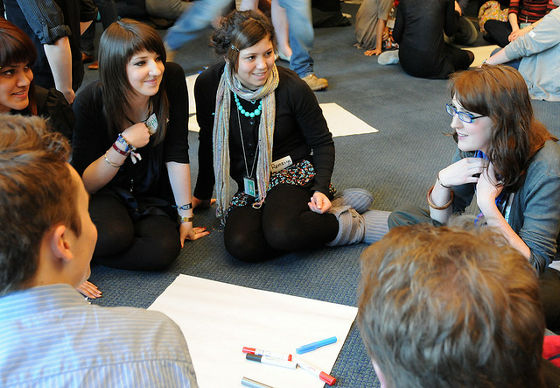
Farzaan Patel / byDFID - UK Department for International Development
The most important thing for amateurs like me to raise funds was to consult with a lot of people to study myself. Since it is important, it is not enough to talk about how much it is.
In my case, while talking about Misoca talking to various people and consulting, people who could not get in touch with me earlier if I realized it, have lent me their power. I am very grateful to the people around and I think that being the most important is to work hard in a serious effort.
In the middle of financing, the most told from various people was "Financing is a means and not a purpose"about it.
As a manager, I think beforehand that I want cash anyway, but originally there are goals and objectives first, and that is about to need this money, and then the best way to procure that money It is about thinking something. The more people I know about financing, the more I told the same thing.
In addition, many people told us to consult with experts and experienced persons as much as possible about procurement by equity. As a result, in case of our company we consulted lawyers, accountants, president of listed companies, CEO of startup, CFO etc. as much as possible. The opinion of experts was important, of course, but what other people said about them was pretty decent and I think that it was very good to deepen the discussion within the company.
Although we are still in the future stage, we were able to grasp the chance of a leap in the form of financing. I'm writing this article because I'm sure many people are helping me to come so far. I am glad that there is a person who reads this article and even personally says "I'm useful!"
I think that it is a time of opportunity now. Let's challenge interesting things together!
· About cloud invoice management service "Misoca"
A free cloud invoice management service registered by more than 11,000 businesses (April 2014).
We provide a mailing substitution function that prints and mails bills of paper simply by operating on-line and reduces the time cost of existing mailing work.
http://www.misoca.jp/

Author
Stand Farm Co., Ltd. (http://standfirm.jp/)
Representative Director Ryuichiro Toyoshi
Born in Gifu prefecture in 1981. 2004 After graduating from the Department of Electrical Engineering at Gifu National College of Technology, opened the Web contract development business as individual business as TOYOSYSTEM. Established 2011 Stand Farm Co., Ltd., will be appointed Representative Director. My hobby is marathon. CSNagoya study group co-organizer, Nagoya Ruby conference staff, OSC Nagoya 2011 Executive Committee Chairperson.
Related Posts:
in Column, Posted by logc_nt







